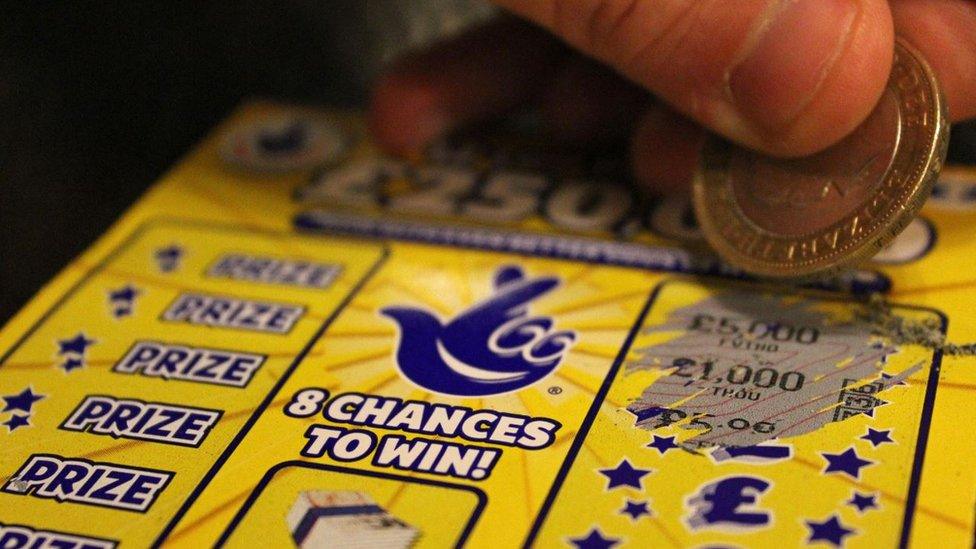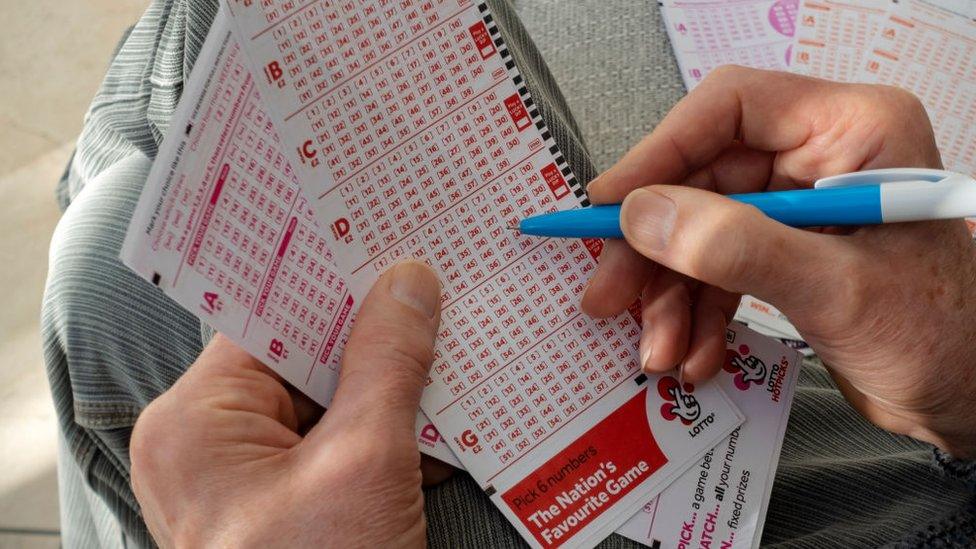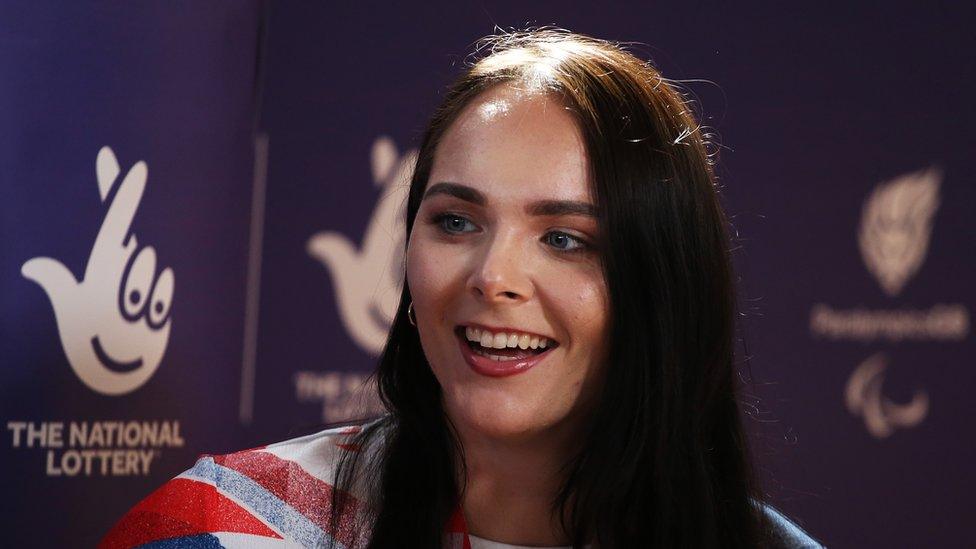National Lottery: Hundreds of post offices to stop selling tickets and scratchcards
- Published

New National Lottery operator Allwyn took over running the games on 1 February
A fifth of post offices in the UK will stop selling lottery tickets and scratchcards, its operator has said.
Last year, the Post Office ended its group contract with the National Lottery, giving branches a choice on whether to stock the products.
Allwyn, which took over running the lottery days ago, said reasons ranged from religious beliefs to low sales.
But one postmaster said he would have "lost a significant amount of money" if he continued to sell them.
The National Federation of SubPostmasters (NFSP) said, for many, the issue is scratchcards.
"We would still be selling [lottery tickets] if it wasn't for the scratchcards," said Calum Greenhow, who runs a post office in West Linton in the Scottish Borders with his wife, and is the chief executive of the NFSP.
Under the previous group contract, the Post Office would cover the cost of the cards, but now each individual branch must pay for them themselves.
Since they refresh every six weeks or so, Mr Greenhow said they risk losing money on unsold stock.
And under a agreement with Allwyn, retailers cannot sell lottery tickets without also stocking scratchcards.
New lottery operator Allwyn told the PA news agency that 900 of the 4,800 branches that had previously stocked National Lottery products have not signed up to continue.
It says more than 600 had chosen not to, while up to 200 were unable to because of county court judgements.
The Post Office said it ended the group contract last year at the request of postmasters who wanted to receive full commission from sales - previously the Post Office took around 1% from each transaction.
It says it has spent the past year "supporting postmasters" to transition to the new lottery provider.
A Post Office spokesman said: "We have taken advantage of a change in the ownership of the National Lottery to deliver more money for postmasters."
They could now have independent agreements with Allwyn meaning they will receives all sales commission, he said.
Allwyn's new CEO, Andria Vidler, said a "vast majority" had signed up to the new licence, and that she believes lottery products attract people to the high street.
"Retailers see this as a real encouragement to get people out", she said.
The company's 10-year licence operating the lottery started on 1 February. It took over from Camelot which had run it since the game's launch in 1994.
One of the world's largest lotteries, the National Lottery has raised more than £48bn for good causes across the UK.
* This article has been amended to clarify the rules on stocking scratchcards and lottery tickets.
Related topics
- Published1 February 2024

- Published27 December 2021
